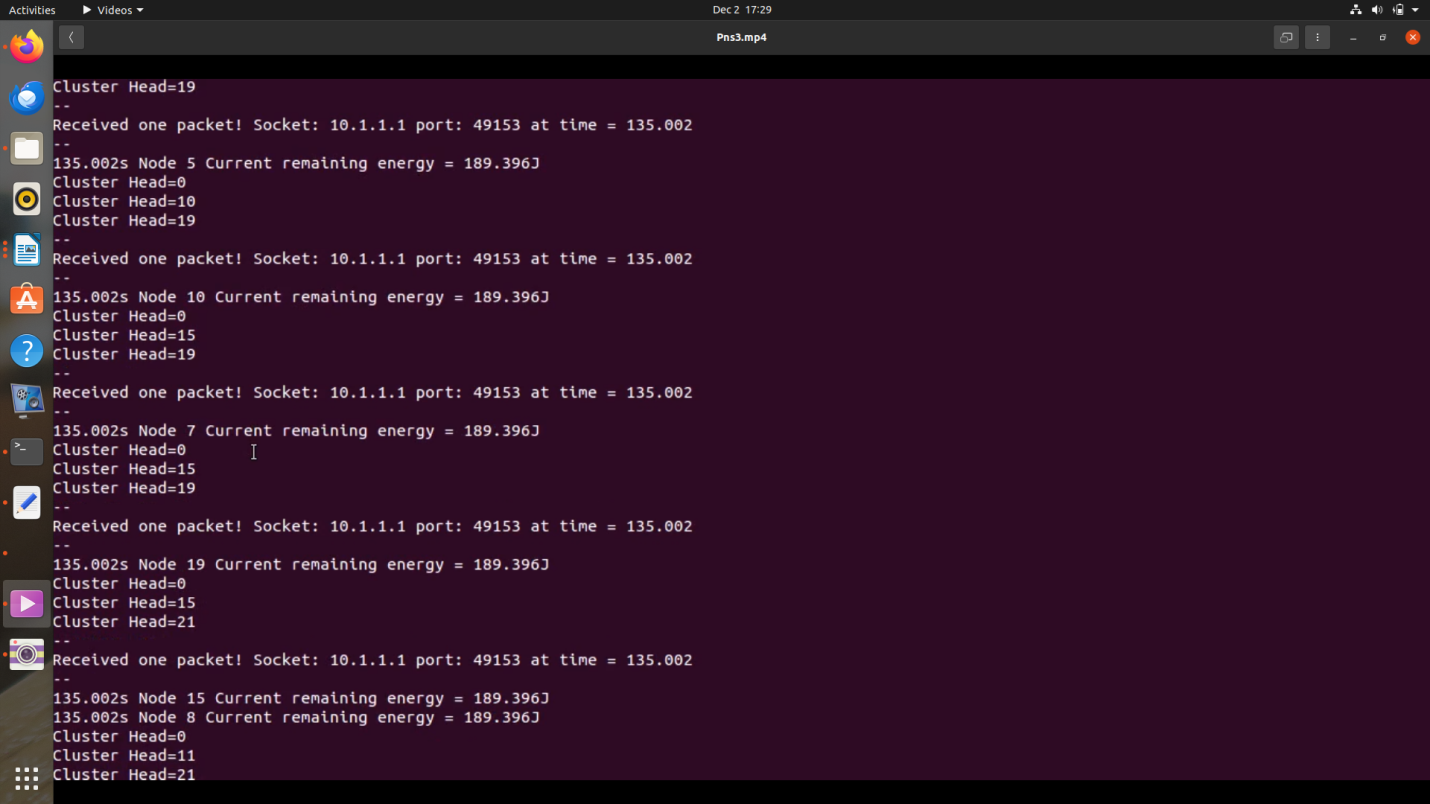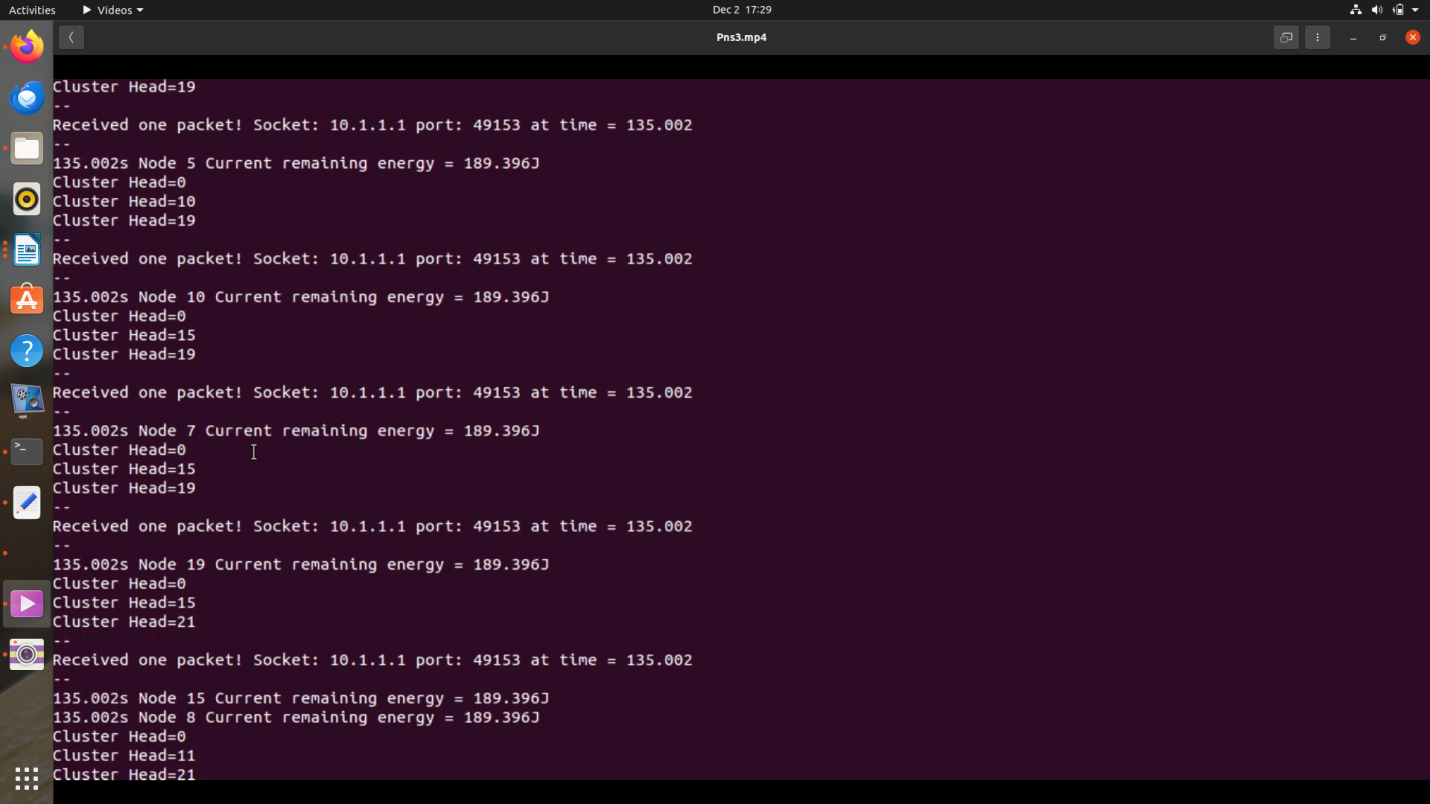Ns3 Projects
AI-Based Energy Efficiency in NS3 projects
We do support AI-Based Energy Efficiency in NS3 projects
The increasing demand for wireless communication services has led to a surge in energy consumption by network devices. This has raised concerns about the environmental impact of wireless networks and the need for more energy-efficient communication protocols. Artificial intelligence (AI) is a promising technology that can be used to optimize energy utilization in network devices and protocols. AI-Based Energy Efficiency in NS3 projects NS3 (Network Simulator 3) is a popular open-source network simulator that can be used to evaluate the performance of different network protocols and algorithms. NS3 provides several modules that can be used to model AI-based energy efficiency mechanisms. These mechanisms can be broadly classified into three categories: " Predictive energy models: These models use machine learning techniques to predict the energy consumption of network devices based on their current state and traffic conditions. This information can be used to make informed decisions about power management, such as when to put devices into sleep mode or adjust their transmission power levels. .

AI-Based Energy Efficiency in NS3 projects
Adaptive energy management algorithms: These algorithms use real-time information about network conditions to dynamically adjust energy consumption parameters. This can help to reduce energy consumption without compromising network performance. " AI-powered communication protocols: These protocols incorporate AI techniques to optimize energy efficiency directly into the protocol design. This can lead to more significant energy savings than using AI-based mechanisms at the device or network layer.

AI-Based Energy Efficiency in NS3 projects
Several protocols have been proposed for AI-Based Energy Efficiency in NS3 projects. These protocols include: " AI-Enhanced MAC Protocols: These protocols use machine learning techniques to optimize media access control (MAC) parameters, such as backoff timers and transmission power levels. This can help to reduce energy consumption without compromising network throughput or fairness. " AI-Powered Routing Protocols: These protocols use AI techniques to optimize routing decisions, taking into account energy consumption as well as other factors such as network delay and congestion. This can help to reduce energy consumption while maintaining network connectivity. " AI-Based Resource Allocation Protocols: These protocols use AI techniques to allocate network resources, such as bandwidth and power, in an energy-efficient manner. This can help to maximize network performance while minimizing energy consumption. .

AI-Based Energy Efficiency in NS3 projects
AI-Based Energy Efficiency in NS3 projects
The use of AI-based energy efficiency in NS3 projects can provide several benefits, including: " Reduced energy consumption: AI-based Energy Efficiency in NS3 projects techniques can help to significantly reduce energy consumption in network devices and protocols. " Improved network performance: AI-based Energy Efficiency in NS3 projects techniques can help to improve network performance by optimizing resource allocation and reducing congestion. " Enhanced network reliability: AI-based Energy Efficiency in NS3 techniques can help to enhance network reliability by predicting and preventing network failures. " Reduced operational costs: AI-based techniques can help to reduce operational costs by extending the lifetime of network devices and reducing energy expenses.
Conclusion
AI is a promising technology that can be used to improve energy efficiency in wireless networks. NS3 provides a powerful platform for evaluating the performance of AI-based energy efficiency in Ns3. By using AI-based Energy Efficiency in NS3 techniques, we can design more energy-efficient network protocols and devices that can meet the growing demand for wireless communication services while minimizing their environmental impact.

